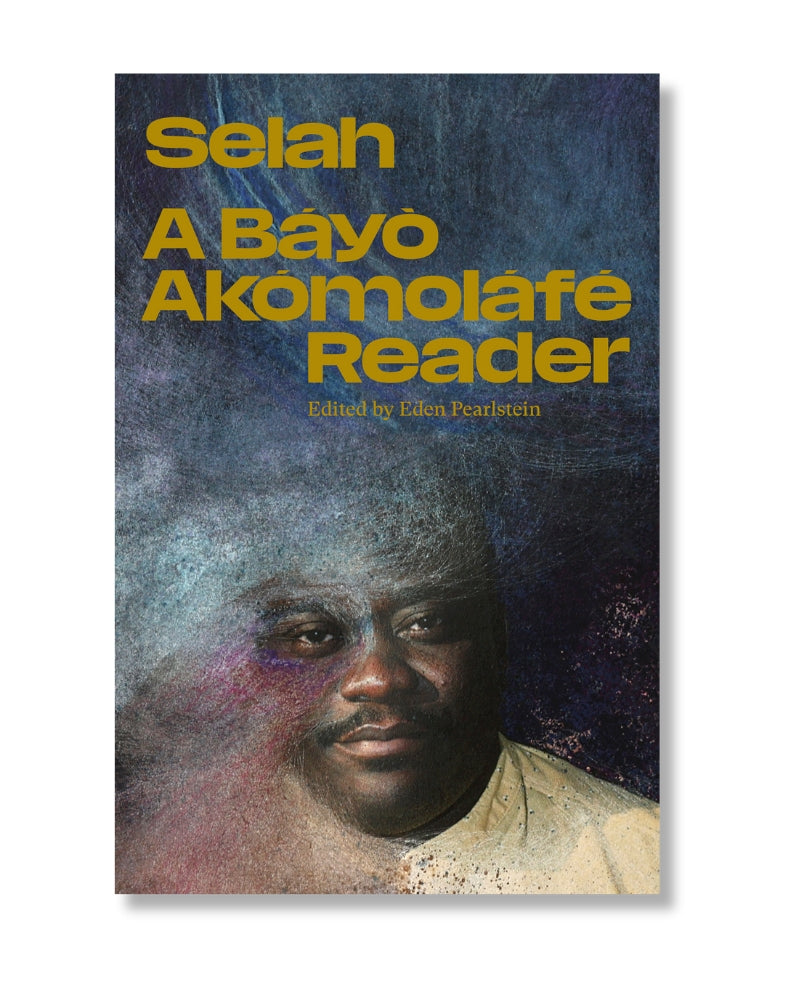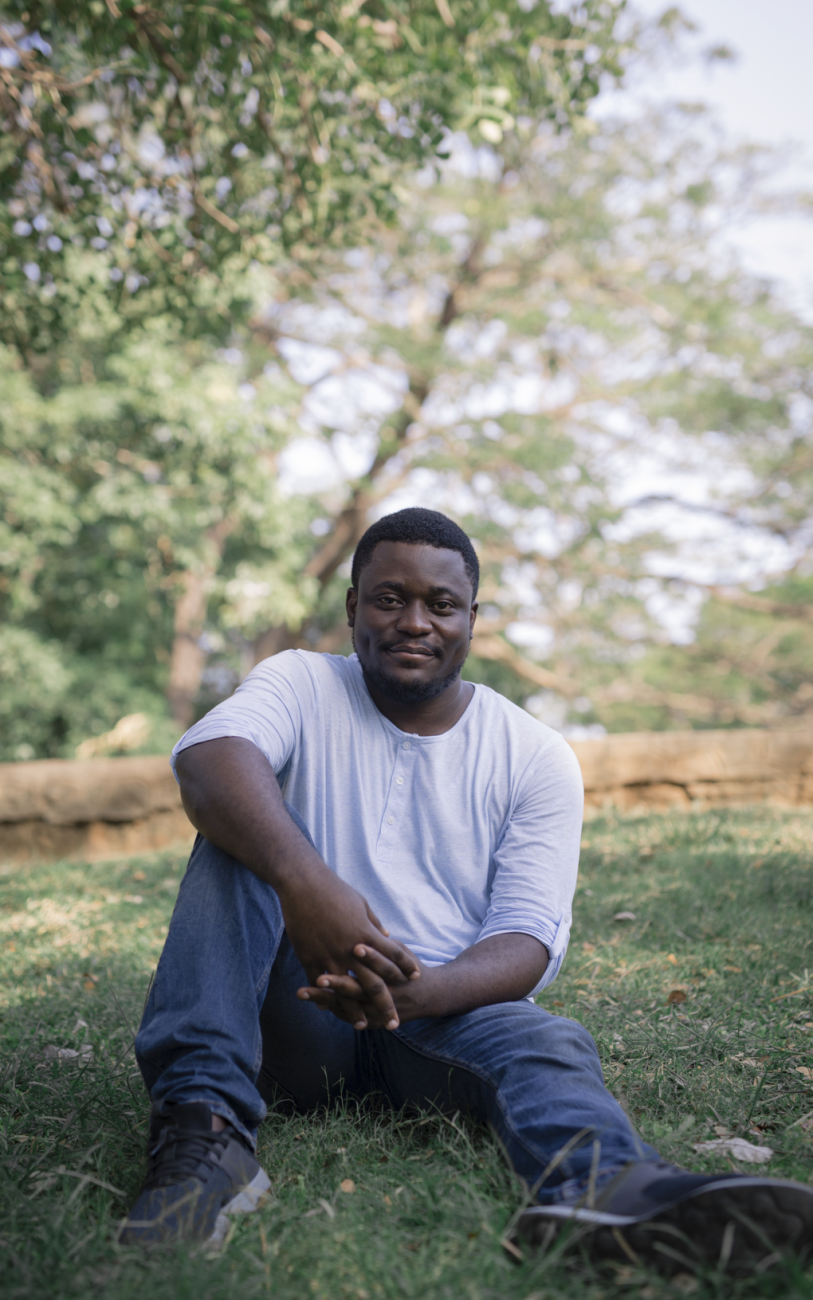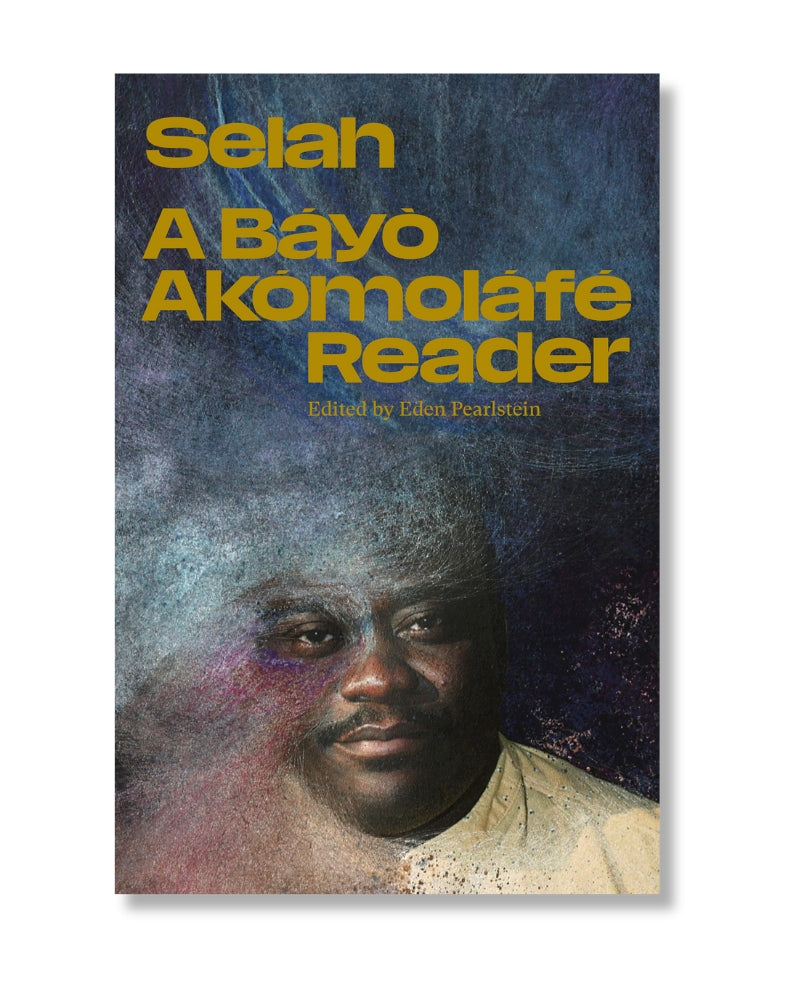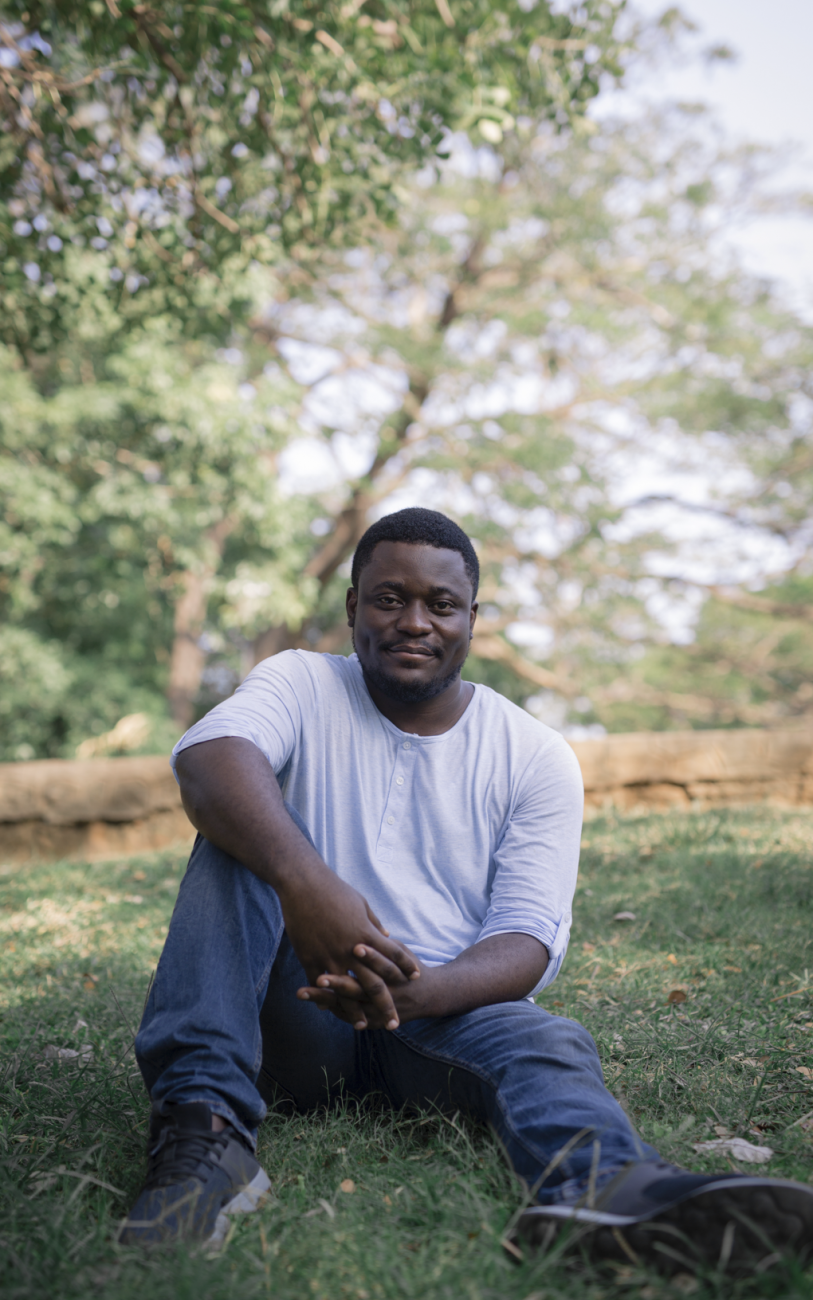Selah: A Báyò Akómoláfé Reader
Selah: A Báyò Akómoláfé Reader
Couldn't load pickup availability
A profound, playful, and kaleidoscopic collection from one of our most evocative contemporary philosopher-poets.
A posthumanist polymath and “trans-public” intellectual, Báyò Akómoláfé has produced a vast body of work that presents a startling picture of the world in perpetual process and radical relation. Through an ever-growing archive of books, articles, interviews, social media posts, workshops, and rituals, Akómoláfé seeks to interrogate the fundamental assumptions and epistemological gaps in our current culture in crisis.
Selah: A Báyò Akómoláfé Reader presents a poetically arranged selection of Akómoláfé’s short-form writings, which draw inspiration from Édouard Glissant; Gilles Deleuze; Gregory Bateson; Octavia Butler; Fernand Deligny; Chinua Achebe; the adventures of Esu, the Yoruba monster-trickster and crossroads figure; and more. A tightly curated composition of aphorisms, anti-epiphanies, prose poems, and philosophical fragments, Selah invites readers into the thicket of Akómoláfé’s thought, weaving together threads of his most critically creative concepts—such as ontofugitivity, ecocognitive assemblage theory, parapolitics, and postactivism. Taking its title from an enigmatic Hebrew word that appears throughout the Book of Psalms—one that suggests a moment of ecstatic exclamation or musical notation—Selah is a book that can be read in an hour or studied for years, kept by your bedside or passed among friends like an open secret. For those already swimming in the depths of Akómoláfé’s language, as well as those encountering his dynamic body of work for the first time, Selah offers an accessible and ecstatic entry into a visionary thinker’s signature thought and poetics.
About the Author
Báyò Akómoláfé, PhD, rooted with the Yoruba people in a more-than-human world, is the father to Alethea Aanya and Kyah Jayden Abayomi and the grateful life-partner to EJ, as well as a son and a brother. A widely celebrated international speaker, posthumanist thinker, poet, teacher, self-styled “trans-public” intellectual, and essayist, he is the author of two books: These Wilds Beyond Our Fences: Letters to My Daughter on Humanity’s Search for Home and We Will Tell Our Own Story: The Lions of Africa Speak! (with Professors Molefi Kete Asante and Augustine Nwoye). Akómoláfé is the visionary founder of the Emergence Network, a planet-wide networking project and inquiry at the edges of the Anthropocene that seeks to convene new kinds of responsivities, sensuous solidarities, and experimental practices for a posthumanist parapolitics. Akómoláfé currently lectures at Pacifica Graduate Institute in California, and was recently appointed the Hubert Humphrey Distinguished Professor of American Studies at Macalester College in Minnesota (beginning in fall 2025). He is also the inaugural Global Senior Fellow of the Othering & Belonging Institute at the University of California (Berkeley); the inaugural W. E. B. Du Bois Scholar in Residence for Trans-Public Intellectualism at the Schumacher Center for a New Economics; and the inaugural Scholar in Residence for the Aspen Institute. Akómoláfé lives between Chennai, India and Great Barrington, Massachusetts with his family. He considers Brazil to be his spiritual home.
Selah: A Báyò Akómoláfé Reader is an accessible and evocative introduction to Bayo’s voluminous writings and teachings. It is also among the initial books to be published as part of Ayin Press’s newest imprint, Aora Books, which explores transformational thought and culture beyond borders, disciplines, and traditions.
Eden Pearlstein (editor) is a multimedia language-artist and cofounder of Ayin Press. He is the author of Nothing Is for Everyone: Poems, a creative contributor to SURVIVA: A Future Ancestral Field Guide by Cannupa Hanska Luger, and coauthor/editor of the chapbook In/Flux: On Influence, Inspiration, Transmission, and Transformation. He lives in Philadelphia with his wife and two children.
Praise for Selah
“Báyò Akómoláfé is a philosopher who is pushing us to think outside of every narrative we take for granted. In this text, he guides us to reconsider how we relate to the world—and to internalize the fact that earth and all of nature are alive, relating to us. Selah is an ancient Indigenous orientation, poured through Báyò’s trickster poetry to make for a fresh agitation.”
—adrienne maree brown, author of Pleasure Activism and Loving Corrections
“There’s a story about Borges, the great mischievous Argentinian writer, reading several books of Martin Buber and then discovering to his surprise that Buber was a philosopher. Why the surprise? Because Buber didn’t make arguments. ‘Arguments convince nobody,’ Borges explained. ‘But when something is merely said or—better still—hinted at, there is a kind of hospitality in our imagination.’
Báyò Akómoláfé is—among much else—a philosopher, but what I find in his work is this kind of imaginative hospitality. It opens itself up to everything that goes missing from our arguments, everyone who goes missing, all the ones who stray from the straight way and learn to dance with loss, to travel like rumors, to elude cognitive capture. Selah is a book full of invitations to the unmarked paths that branch off from the highway of progress. There’s mischief waiting down those paths, and monstrous grace, and a poetry that unsettles all the assumptions we didn’t even know we were making.”
—Dougald Hine, author of At Work in the Ruins
“Like the carpenter ant sporulating cordyceps mushrooms from its forehead, one has the sense that Báyò Akómoláfé’s insights might be dangerous to channel—that we are reading the final, perhaps fatal, fungal flourish of entities simultaneously too microscopic and too macrocosmic for our human organism to ever comprehend. These blessings do not offer protection. They offer divine infection—with mystery, with microbial anarchy, with revelry, and, most importantly, with a widened capacity for gardening in the ecotones of paradox. In a moment where there are no easy answers and no right side, Akómoláfé shows us how to play in the fertile interstices between species, and how to pray in the fertile compost heap between sterile ideologies.”
—Sophie Strand, author of The Body Is a Doorway and The Madonna Secret
“As teetering border walls create glorious patterns of cracks and fissures in the architectures of certainty and loss, Báyò sweeps away the panicked grief of the Anthropocene with delight at the ‘wondrous meanwhile’ in which the world turns itself inside out and our edges migrate to the center of things. I often wonder why brother Báyò keeps engaging with me, when I spend all my time teasing thought leaders, or disrupting seekers of knowledge. Then I read Selah and understand that ‘when wisdom becomes too full of itself, it needs the intervention of the stupid,’ and that ‘play is the poetics of the sideways.’ Thus, as a fool/trickster, I am compelled to blurt out some spoilers and ruin the breathless anticipation of earnest readers: every standpoint has closets full of skeletons; the self is a multi-species collective; morality captures ethics just as games capture play; your identity, voice, and lived experience are artifacts of an illusory order imposed by the powerful; and empire seeks to colonize the world, but instead the colonized creolize the world. Each story and insight in Selah inducts us into the Möbius strip of brother Báyò’s logic, compelling us not to seize on any of his words as truth, but to use his tools of peripheral cognition to follow the cracks and wounds of this world, to fully inhabit our entanglement.”
—Tyson Yunkaporta, founder of the Indigenous Knowledge Systems Lab at Deakin University
“Selah is a thousand branching pathways, like the winding veins of rivers, blood, roots, and roads. As travelers we are invited to ride upside-down, to tilt and sway, to giggle and loosen the tyranny of expectation, tickling the familiar. As ossified ideas crumble in these pages, there is the possibility of ooze, and the ooze of possibility. Everything that once was said to be preferable is now not. Everything that once was taught to be foundational turns out to be illusion. We are called to upend the hallowed assumptions of modernity and drink the last drop of its hallucinations and then—with a great and revelatory bodily retch—behold a crack, a peek into the world of vibrant relational swirls that have kept vigil for the ghosts of creation. Be ready to swallow your words, trip on your own feet, and forget your name. This book is important, it is a portal, a port from which to impart a new lostness. Thank you, Báyò, for unpeeling the petroleum pavement and releasing the muddy slime of poetic life.”
—Nora Bateson, president of the International Bateson Institute and author of Combining
“In the ‘right to opacity,’ the com-post of post-activism gathers its more-than-human energies toward a politics of defamiliarization. Where blackness is how the cracks trouble the edifice of justice presupposed, bewilderment is cultivated. In care for how touch shifts the conditions of an earthly relation, in the tenderness of a grace ‘that allows something different,’ the struggle to ask the ‘right’ questions dances. No maps are provided in this lyrical unmaking of the time of white capture where ‘to be embodied is to be beside oneself.’”
—Dr. Erin Manning, Research Chair in Speculative Pragmatism, Art, and Pedagogy at Concordia University
Book Details
122 pages | Paperback | 5 1/16 x 7 3/4 in. | ISBN: 9781961814318 | e-ISBN: 9781961814356
Publication date: February 24th, 2026
Book design by Melissa Weiss
Cover artwork by Krista Dragomer



